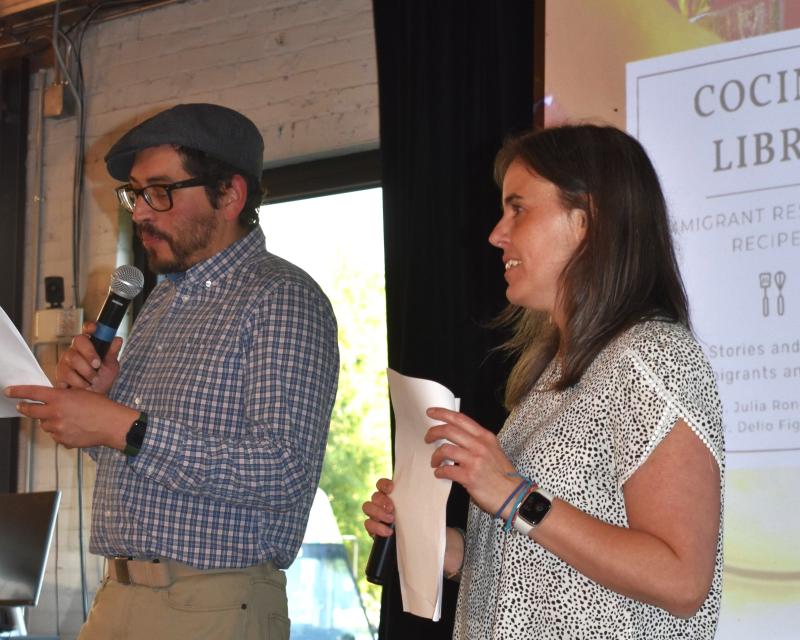Bringing Immigration Stories to Life: A Community-Engaged Teaching Initiative
By Dr. Julia Roncoroni, Counseling Psychology

In Winter Interterm 2024, Dr. Delio Figueroa and I (Dr. Julia Roncoroni) had the opportunity to lead Immigration Enforcement, Human Rights, and Social Justice, a week-long graduate course designed to examine the lived realities behind immigration enforcement policies in the U.S. Thanks to a Community-Engaged Teaching grant from the Center for Community Engagement (CCESL), this course created a meaningful space where students engaged directly with immigrant voices and learned to use storytelling as a tool for advocacy and social change.
The grant funding allowed us to welcome guest speakers who enriched the course in two transformative ways:
1. Filmmaking Expertise: A Latin American filmmaker with expertise in projects related to immigration in the U.S. (Licenciada Andrea Chame) guided students through the process of creating short documentaries. This hands-on approach gave students the technical and creative skills to amplify immigrant voices effectively in ways that are somewhat unconventional in academia, in particular for non-film major students.
2. Immigrant Narratives: Undocumented and DACAmented guest speakers shared their powerful stories of navigating the complexities of U.S. immigration policies. These firsthand accounts provided students with an unfiltered perspective on the human impact of enforcement strategies.
Throughout the course, students explored the broader implications of immigration policies on individuals, families, and communities. They analyzed historical and contemporary policies while learning about the social and economic consequences of enforcement. The culmination of their work was the production of digital stories—3-4 minute multimedia documentaries—that captured the resilience and humanity of immigrant experiences.
These stories were shared in a final class screening, fostering a deeper understanding of immigration realities and inspiring a call to action. The process of creating these films was transformative, blending academic rigor with emotional engagement. Students not only honed their critical thinking and storytelling skills but also gained a profound appreciation for the courage and complexity of immigrant narratives.
This project highlights the immense value of integrating community voices into the classroom. By connecting with immigrants and learning their stories, students developed a nuanced understanding of the systemic challenges faced by marginalized communities. At the same time, immigrant speakers had a platform to share their experiences, fostering mutual learning and respect.
Through this initiative, the course bridged the gap between academia and advocacy, demonstrating how community-engaged teaching can advance both education and social justice. It serves as a reminder that storytelling has the power to build empathy, spark dialogue, and inspire change.
The Signature Faculty and Student Program is made possible with generous funding from the Arthur Vining Davis Foundations.